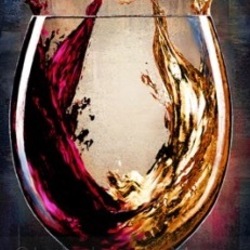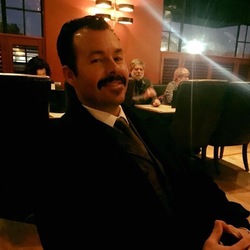Tesco Finest Old Vine Selection
Bianchi
Signature Selection Paso Robles Petite Sirah
Smooth. Good smell. No alcohol taste. Old vine. — 7 years ago
Four Vines
Central Coast Old Vine Zinfandel 2014
2014 vintage. Very enjoyable. Big and fruity. A JP selection. — 7 years ago
Domaine de Châteaumar
Cuvée Vincent Selection Côtes du Rhône Syrah 2015
Bedrock Wine Co.
Ode to Lulu California Old Vine Rosé Blend 2016
Bright pink rose with a bit of a darker fruit profile, I'm guessing that characteristic comes from the heavy dose of 100+yr old mourvedre. There is also a melon note here that is delicious and keeps me reaching for the next glass. Great rose year after year but this may be its finest vintage to date. — 8 years ago
Bogle Family Vineyards
Phantom Old Vine California Zinfandel Blend
Chairmans selection in PA. LIVED UP TO IT. Ate with sushi. Bold but not overwhelming. Fruity flavor. Smooth and refreshing. — 9 years ago
Penfolds
Bin 138 Old Vine Barossa Valley Shiraz Blend 1999
Kicking goal at 17 years old.
A culmination of vine pedigree, cork selection, proper cellaring, and decanted at the right time.
It evolved for over 3 hours.
A credit to Penfolds ability to make even lower tier wines with substance.
Soft tannin, earth, spice, surprising fruit! — 9 years ago
Renwood Winery
Premier Amador County Old Vine Zinfandel 2013
2013 Premier Old Vine Zinfandel is beautiful and dark, with glints of ruby red. Blended from 50 individual lots of Old Vine Zinfandel and aged 16 months in the finest French oak, the resulting wine is intriguing and sumptuous. Chocolate, raspberry and vanilla bean greet you on the nose, followed by bright red fruit flavored. Both powerful and refined, the finesse of this wine makes it perfect for an everyday sip, or for a special meal. An opulent wine, to enjoy now and for the next 5 years. — 9 years ago
Clendenen Family Vineyards
The Pip Santa Maria Valley Nebbiolo 2014
#Nebbiolo is a surprisingly rare grape. Even in its native Piedmont, it accounts for only 8% of vineyard land. There are fewer than 100 hectares planted in the United States. 🕵️♂️🍇
Over 80% of prewar Italian immigrants came from Sicily and Southern Italy. Piedmont was the wealthiest and most politically dominant region. But if fortunes were reversed, could Nebbiolo have taken Primitivo/Zinfandel’s place as a grape relatively uncommon on the boot but dominant in California? 🤔🇮🇹🇺🇸
Probably not. The Nebbiolo vine is *not* for beginners. It flowers early and ripens late, making it susceptible to both spring and autumn frosts. It loves the occasional fog bath (some say the name is derived from ‘nebbia’, Italian for fog ☁️☁️☁️) but is prone to the mildew that may result from such humid conditions. Its fussiness would make Pinot Noir blush: it demands southwesterly exposure, a proper gradient, constant sun above, and fog licking at its toes. #diva
Sound anything like California’s Central Coast? 🌅
In the Santa Maria Valley, where the East-West Transverse Range bends back into the North-South Coastal Range, it’s possible. Vineyard selection still requires extreme discretion - an eye like @JimClendenen’s, perhaps.
Jim began the Nebbiolo program at the legendary #BienNacido vineyard in 1994. Production is small, but if you track down his “The Pip” Nebbiolo, it will only run you about $30. You’ll believe anything is possible when you have real California Nebbiolo of this quality come wafting out of the glass at you! 🙌🙌
🏞.“The Pip” is named after Jim’s old cellar dog Pip, a border collie. So it only seemed right to include one of our own pips! 🐈 — 6 years ago
Hendricks Wines
Gold Ranch Cabernet Sauvignon 2009
On the nose, ripe, ruby, fruits of; mulberry, blackberries, black raspberries, black plum, plum, black cherries, blueberries & creamy raspberries. Vanilla, hints of sweet tarriness, black licorice, whiff of spice, soft understated limestone minerals & crushed rock powder, fruity black tea, hint of fresh herbaceousness, rich, black turned earth, fresh dark floral bouquet and fields of lavender & violets.
The body is rich, ripe & full. The tannins are a little sticky but well softened, round and a touch chewy. The structure, tension, length, balance, tension and balance are very close to perfect and harmonious. Fruits are; mulberry, huckleberry, blackberries, black raspberries, black plum, plum, black cherries & creamy raspberries. Vanilla, hints of sweet tarriness, black licorice, whiff of spice, soft understated limestone minerals & crushed rock powder, fruity black tea, hint of fresh herbaceousness, rich, black turned earth, fresh dark floral bouquet and fields of lavender & violets. The acidity is round and rains like a waterfall perfectly over the palate. The very long, ruby, rich, well balance lasts minutes and is absolutely heavenly. Gorgeous, elegant, stunning wine.
Photos of; the vertical tasting we attended of all Hendricks Cabernets; 04, 05, 09 & 12 at the time w/ one of our favorite paintings in the background, Charles Hendricks working in the cellar, very old rootstock from the Stag’s Leap Vineyard where the fruit to make this wine normally comes from and a wide shot of the Stag’s Leap Vineyard.
Producer notes and history...Hendricks Cabernet Sauvignon is consistently sourced from a few of Napa Valley’s finest vineyards. In those near perfect vintages, Charles only makes a small production wine of around 250-300 cases. Charles only produces it when he has exception fruit. He’s made Hendricks Cabernet in; 2004, 2005, 2009, 2012 & 2014. Notice he didn’t make Hendricks Cabernet in a great vintage year like 2013. He wasn’t happy enough with his fruit in 2013 to put his name on it. That says a lot and maybe all you need to know about his standard for quality. I do know what wine his 13 fruit made as I’ve had and it’s an unbelievable wine for far less money.
Charles also makes a fantastic Pinot Noir from the Santa Lucia Highlands that is really quite amazing. Especially, if you give it 5 or 6 years in bottle. All his wines are sold exclusively through the Hope & Grace tasting room in Yountville as he is also the Hope & Grace Winemaker.
Charles graduated in 1982 from UC Davis in viticulture. He was also able to tailor his own curriculum and was one of the earliest to integrate winemaking and viticulture course work. Having knowledge of both viticulture and enology forms the basis for his well-rounded winemaking.
Over the years Charles has worked in both Napa and Sonoma Counties, gaining hands on experience in all aspects of winemaking. He has a strong reputation for excellence. In his career, he’s been a consulting winemaker for many wineries; Viader, Barnett Vineyards, Paoletti Vineyards, Regusci Winery, James Cole, T-Vine and Tamayo family Vineyard.
I asked Charles, “how does he make wines that are amazingly good in their youth but will age effortlessly for 15-20 years?” His answer was simply this, “its not that hard, you just have to know the perfect time to harvest fruit.” I would agree with that to a degree. But, you also have to know how to gently guide fruit onto it’s path into the barrel and not get in the wine’s way or overwork the process. — 7 years ago

Klinker Brick
Old Ghost Old Vine Lodi Zinfandel 2013
Finest Zin I have ever tasted. — 9 years ago
tesco finest old vine selection
Campo de Borja Garnacha 2014
Delicious. — 9 years ago
Porter Creek
Old Vine Sonoma County Zinfandel 2012
Even though there are plenty of aweful wines made from Zin, I still consider it one of my favorite grapes - and tasting one like this makes it clear why. Rustic with olive and brushy bramble spices. Powerful but made authentically - drinking a glass you become instantly transported to some beautiful vineyard in Sonoma. Sense of place, pleasurable and interesting. This is American wine at its finest. — 10 years ago
Ravenswood Winery
Besieged Limited Release Old Vine Sonoma County Red Blend 2014
Very fine wine, one of the finest blend. Recommended — 6 years ago
Scott Harvey Wines
Vineyard 1869 Old Vine Zinfandel
One of the finest Zins made anywhere. — 7 years ago
Château Larcis Ducasse
Saint-Émilion Red Bordeaux Blend 2003
I’m opening my last bottle of the 03 Larcis Ducasse after recently reading a couple of professional write ups about the wines fruit fading and to drink up. I did not find that to be the case w/ my last bottle. I found the wine to be around it’s peak form with another 5 years plus ahead. On the nose; menthol, eucalyptus, ripe; dark cherries, cherries, blackberries, plum, poached & candied strawberries, notes of blue fruits, black raspberries, cherry cola, touch herbaceous; sage & bay leaf, limestone & rich, moist, black, turned earth, crushed dry rocks, graphite, dry soil/clay with dry & fresh dark florals. The body is medium full. Tannins are 75-80% resolved. The length, structure, tension & balance are right where I’d expect them to be and are quite enjoyable. The palate is very similar to the nose. Menthol, eucalyptus, ripe; dark cherries, cherries, blackberries, plum, poached & candied strawberries, notes of blue fruits, black raspberries, cherry cola, touch herbaceous; sage & bay leaf, limestone & rich, moist, black, turned earth, crushed dry rocks, dry & very grippy, edgy minerals, Montecristo cigar, graphite, dry soil/clay with dry & fresh dark florals. The acidity is lovely and the long finish is well balanced with an even tug of war between fruit & earth with the dry earth dominate on the long set. Photos of; of their great southern exposed sunny hillside vineyard, the old craved stone entrance and Nicolas Thienpont & Stephane Derenoncourt. Producer notes & history...Chateau Larcis Ducasse began during the days of the ancient Romans, who valued the best hillside vineyards in the area. The early part of the modern era for Larcis Ducasse begins in 1893, when Henri Raba bought the Saint Emilion vineyard. After Henri Raba passed away in 1925, his wife and son Andre Raba continued managing Larcis Ducasse. His niece, Helene Gratiot Alphandery, inherited the property in 1941. She managed Chateau Larcis Ducasse until 1990. Then her son, Jacques-Olivier Gratiot took control of the property after she passed away and he remains in charge today. Chateau Larcis Ducasse remains the property of the Gratiot Alphandery family today. Prior to 2003, it had been years since the wines of Chateau Larcis Ducasse were prized by Bordeaux wine lovers. The wine had fallen out of favor, due to a lack of attention and effort. That changed in 2002 when they hired Saint Emilion consultants, Nicolas Thienpont and Stephane Derenoncourt to turn things around and manage the estate. One of the first improvements at the property suggested by them was to create a new drainage system. The next step was to change harvesting practices. Prior to 2002, the grapes were often picked too early and over a very short duration of 2 to 3 days. Now, the harvest takes place when the fruit is ripe and picking can take as long as 2 to 3 weeks. Starting with the 2005 vintage, all work in the vineyards moved to 100% organic farming methods. The 10.85 hectare St. Emilion vineyard of Larcis Ducasse is planted to 78% Merlot and 22% Cabernet Franc. This shows a slight change in the vineyard, as more Cabernet Franc has been added to the plantings since 2003. The vineyard is located just around the bend in the road from Chateau Pavie. In fact, their vines but up against each other. They are surrounded by more good producers. To the south, is Chateau Canon La Gaffeliere and La Gaffeliere, and as you move north, Chateau Troplong Mondot and Chateau Pavie. The terroir of Chateau Larcis Ducasse is a mixture of soils. The vines on the top of plateau and the slopes have a south facing exposure. At the higher elevations on the plateau, the terroir is limestone, clay and chalk soils. As you travel further down the slopes towards the terraces, the terroir is a blend of chalky limestone, marl, sand, silt and clay soil. At the base of the slopes, you find sand and clay soils. On average the vines are 35 years of age. While the older plantings were done at a vine density of 6,600 vines per hectare, as the vineyard continues to be slowly replanted, the vine density is increasing with each subsequent replanting. The new plantings are being done at 7,500 vines per hectare. They are also using budwood obtained through selection massale. The yields are kept low at Larcis Ducasse. In 2009, the effective yields were only 25 hectoliters per hectare.To produce the wine of Chateau Larcis Ducasse, the grapes are whole berry fermented. The fruit is transported by gravity flow into traditional, cement tanks for fermentation. Cuvaison takes between 25-28 days. There are no pump overs. Pigeages are conducted during fermentation. Malolactic fermentation takes place in barrel. The wine of Chateau Larcis Ducasse is then aged in 67% new, French oak barrels, which are mixed in size, between standard barrels and 500 liter French, oak casks. The wine is then aged for an average of 18 to 20 months in barrel before bottling. The production averages close to 4,000 cases depending on what the vintage gives. — 7 years ago

Golden Cluster
Coury David Hill Vineyards "Ode to Chuck" Old Vine Sémillon 2014
Oregon's oldest plantings include this rare, overlooked Semillon that Jeff Vejr makes from the historic Coury vineyard. Simply unadorned yet huge, gorgeous, and begs the question: why isn't there more Semillon growing old & bodacious in Oregon? BTW, this is Jeff's premium selection, named "Ode to Chuck" for Charles Coury! — 9 years ago
Yangarra Estate
High Sands McLaren Vale Grenache 2010
Old vine grenache at its finest. Aromatic, expressive and mineral with fruit focused on the palate. Sand over ferrous sandstone. — 10 years ago















Rhonely Boy
Very good selection, in the Under $10 range ($5.97 at Total Wines)
Having been to the Ravenswood winery, and trying a good portion of the portfolio, grabbing this was a no-brainer. Decanted for an hour, good fruit in the Boysenberry range (Blackberry x Raspberry, Loganberry being a similar hybrid), nice spicey character. Would purchase again in the price range.
Ravenswood has a nice portfolio, and I hope after this Pandemic period, Gina Gallo opens the doors to the tasting room once again. — 5 years ago